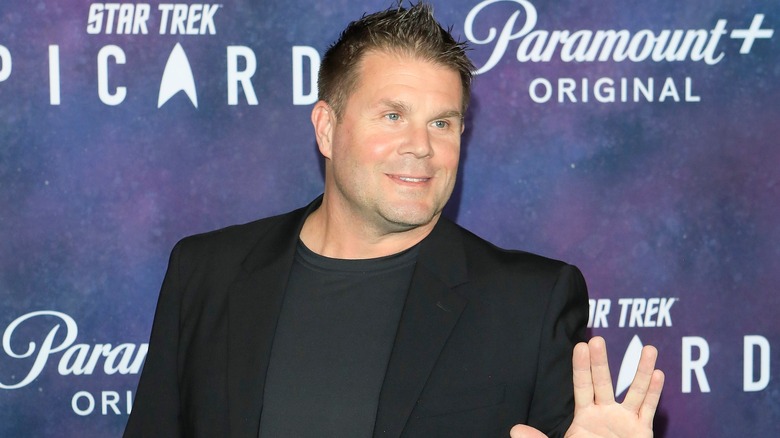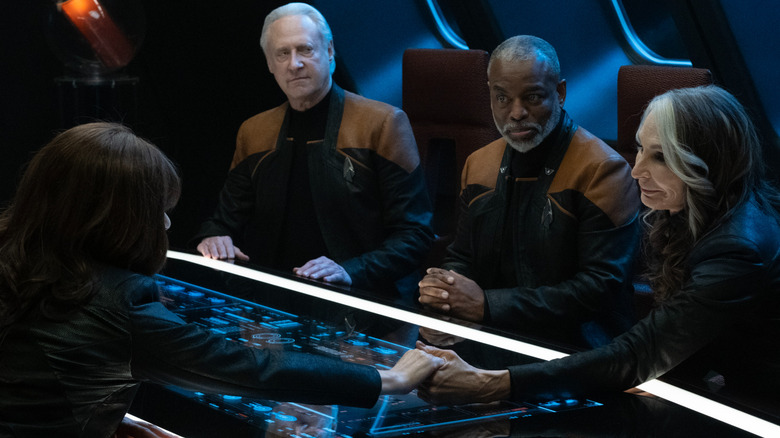Star Trek: Rod Roddenberry Expresses Concern Over Dark Tone In Newer Series
Producer Rod Roddenberry sits at the helm of the "Star Trek" universe to ensure the franchise continues to go where no one has gone before. True, Gene Roddenberry, innovator and creator of the science fiction saga, might be gone, but his hopeful vision of the future lives on through his son, Rod. Heir to the "Trek" empire, Roddenberry continues his father's work, and he's served as executive producer on many of the franchise's entries, including "Discovery," "Lower Decks," "Picard," and "Strange New Worlds." But is the darker tone of these modern-day installments too much for the younger Roddenberry to come to grips with?
"Complicated answer," Roddenberry addressed the question during a 2021 Reddit discussion. "I too sometimes wrestle with what is and is not 'Star Trek,' or what is and is not [Gene] Roddenberry's 'Star Trek.' My father was a humanist, futurist, and for the most part optimist. He believed in the potential of humanity."
Continuing, Roddenberry stated, "And [he] knew that if we learn to not just tolerate, but crave, thirst, and truly be in love with the differences between us that we can overcome all the current day and past ignorance and prejudice that stunted our intellectual growth." It might seem at times that the new "Star Trek" projects are pushing the boundaries with darker, despairing themes, but rest assured those elements aren't sparking any sub-space interference when it comes to Roddenberry's overarching message of hope.
Hope trumps dark tone
Eugene "Rod" Roddenberry ascended to the position of CEO for Roddenberry Entertainment in 2006, and he works tirelessly to further the legacy that started with "Star Trek: The Original Series." His father's science-fiction saga tells the story of a future brimming with space exploration and features a diverse collection of Starfleet officers working together for the greater good. And hope will always be the cornerstone of the "Star Trek" franchise regardless of the subject matter and themes the new projects might tackle, or the darker tone any or all of them may effuse.
"I have learned over the decades that 'Star Trek' speaks to different people on different levels," Roddenberry continued to address the darker tone question in his Reddit discussion thread. "Sometimes I'm also concerned that certain shows and episodes may not represent an optimistic [outlook] of a future that I or I think he would like. I do ultimately think the messages those shows [explore] still carry through and point us in a better direction."
The "Star Trek" franchise never shied away from the untoward. For example, one of the best films ever produced in Roddenberry's sci-fi world was "Star Trek II: The Wrath of Khan." Khan Noonien Singh's (Ricardo Montalbán) obsession with getting revenge on Admiral James T. Kirk (William Shatner) leads to one of the most violent entries in the series. Despite the film's dark tonality, the Genesis planet's creation offered viewers hope, particularly where Mr. Spock's (Leonard Nimoy) demise lingered.

